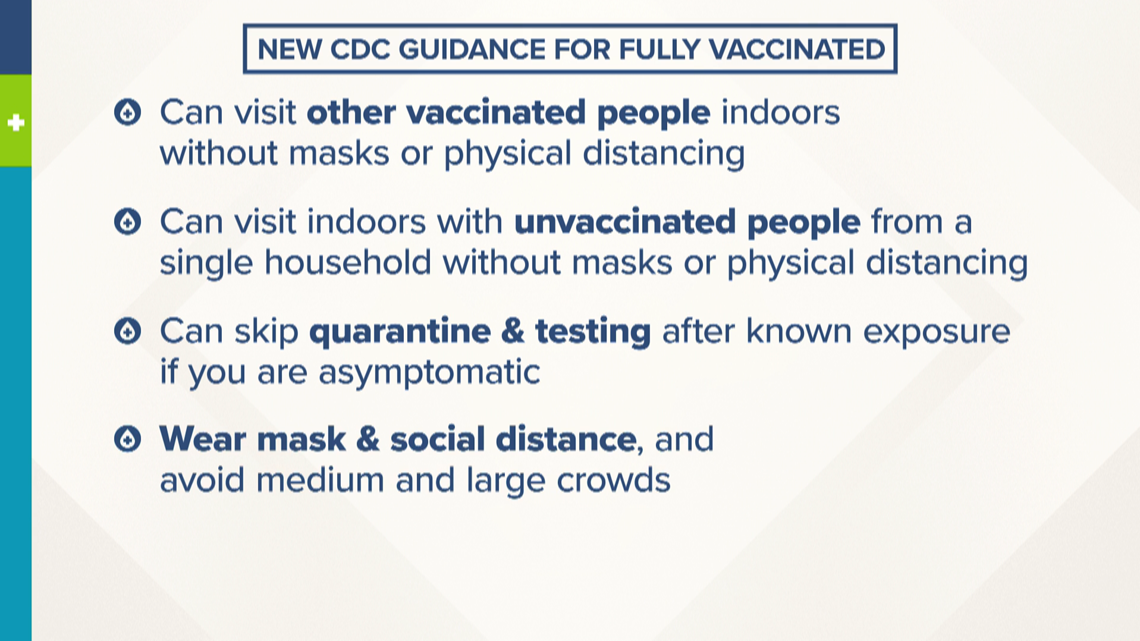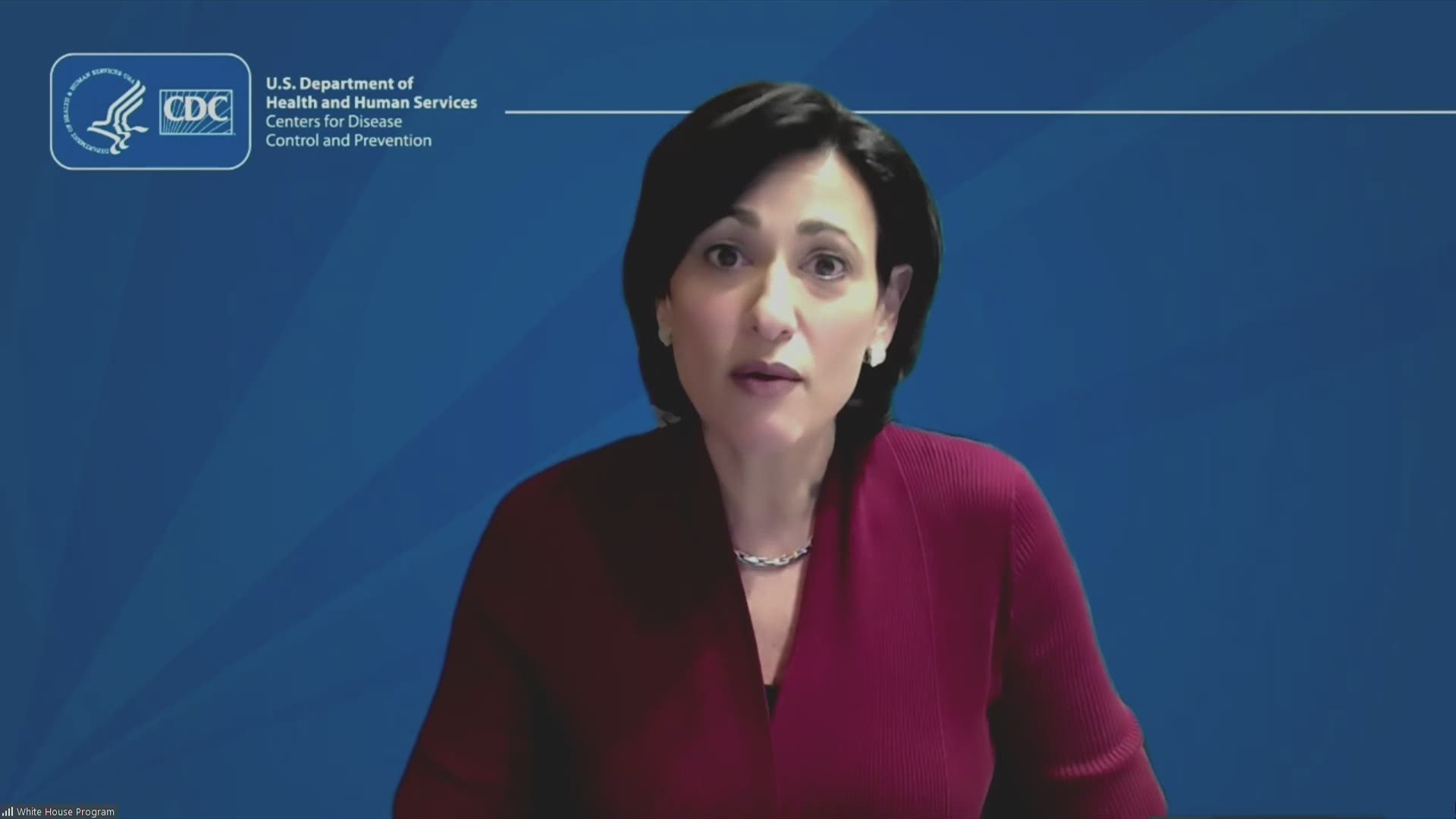ATLANTA — “Hope for the future” and another step toward where we were before COVID-19 upended our lives.
That’s how CDC officials described the new guidance health officials released Monday, shedding light on what a post-vaccine life can safely begin to look like.
The much-anticipated guidelines give the OK for people who’ve been fully vaccinated to begin seeing loved ones in person again without having to wear masks or practice social distancing — with some exceptions.
For many Americans, it could mean seeing a loved one in a long-term care facility or letting grandparents visit with their healthy grandchildren.
The guidelines don't explicitly say that, for example, a grandma can give her grandson a hug. However, the guidance appears to suggest such behavior is safe in certain circumstances. The guidelines say vaccinated people can gather indoors without social distancing or masks with unvaccinated people from another household, as long as those who are unvaccinated are at a low risk for severe illness from the virus.
“We know that people want to get vaccinated so they can get back to doing the things they enjoy with the people they love,” said CDC Director Dr. Rochelle Walensky, in a statement.


The CDC said at this point more than 2 million Americans are getting vaccinated a day. More than 59 million Americans have received at least one dose and 31 million — or 9.2% — of the U.S. population is fully vaccinated.
Walensky said the numbers show the country is “starting to turn a corner” in the fight against COVID-19.
Fully vaccinated Americans should continue following recommended safety protocols, like wearing a mask and social distancing, when out in public or in crowds.
The CDC website details what the new guidance means for Americans who are fully vaccinated. Here’s a look at the takeaways.
Who qualifies as "fully vaccinated"?
People are considered fully vaccinated:
- Two weeks after getting the second dose of a two-dose vaccine, like Pfizer or Moderna
- Two weeks after getting a single-dose vaccine, like the Johnson & Johnson vaccine
What has changed if you’ve been fully vaccinated
- You can gather indoors with fully vaccinated people without wearing a mask
- You can gather indoors with unvaccinated people from one other household (for example, visiting with relatives who all live together) without masks
- The exception here is if any of those people or anyone they live with has an increased risk for severe illness from COVID-19
- If you’ve been around someone who has COVID-19, you do not need to stay away from others or get tested, unless you have symptoms
- However, if you live in a group setting (like a group home or correctional or detention facility) and are around someone who has COVID-19, you should still stay away from others for 14 days and get tested, even if you don’t have symptoms
What hasn’t changed if you’ve been fully vaccinated
- You should still take steps to protect yourself and others, like wearing a mask, staying six feet away from others and avoiding crowds and poorly ventilated spaces. You should take these precautions in the following settings:
- In public
- When gathering with unvaccinated people from more than one other household
- When visiting with an unvaccinated person who is at an increased risk of severe illness or death from COVID-19 or lives with a person at an increased risk.
- Avoid medium- or large-sized crowds
- Delay domestic and international travel. If you do travel, follow the CDC’s requirements and recommendations.
- Watch out for symptoms of COVID-19, especially if you’ve been around someone who is sick. If you have symptoms, you should get tested and stay home and away from others.
- You should still follow guidance at your workplace.
Health officials at the CDC said they’re still learning how long COVID-19 vaccines can protect people, along with how effective they are against the variants that have been popping up.
“As we know more, CDC will continue to update our recommendations for both vaccinated and unvaccinated people,” the agency’s website states.
For more information about how you or a loved one can get on a registration list near you in the St. Louis area, follow our full COVID-19 vaccine registration coverage here.

